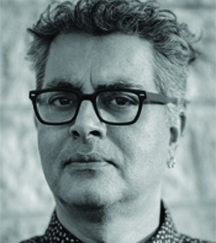V.S. Naipaul’s Finding the Centre was one of the first literary autobiographies I read. Its very first sentence conveyed to me, with its movement and rhythm, a history of repeated striving, and of things coming together, at last, in the achievement of the printed word: “It is now nearly thirty years since, in a BBC room in London, on an old BBC typewriter, and on smooth, ‘non-rustle’ BBC script paper, I wrote the first sentence of my first publishable book.” Vikram Seth’s A Suitable Boy showed me that you could write a book in English about a town in Uttar Pradesh or Bihar but endow it with all the ease and transparency and wit of the Hindi or Urdu spoken on the street. Arundhati Roy’s The God of Small Thingsis said to have unleashed a rogue writerly gene among a new generation of Indians, but to read the book again is to be reminded just how high she set the bar for first novels. Akhil Sharma’s An Obedient Father is a difficult book to read but it is one of the most original works in Indian writing. Every day I meet people who think R.K. Narayan revealed the real India but I found Sharma and realized that to read Narayan was like sucking on toffee. Aravind Adiga’s The White Tigertaught me that you could write a book with a cast of false characters beset by painfully cartoonish ills—but if you set the pace right and seized upon the right platitudes then people who didn’t know better would judge that you had written a masterpiece. This is a great lesson in the writing and reading of literature. Susan Sontag’s essays, Philip Roth’s voice in free flow, Katherine Boo’s and Suketu Mehta’s reporting, Geoff Dyer’s cross-genre writing, my friend Teju Cole’s novel Open City, these are some things that almost daily inspire me.
